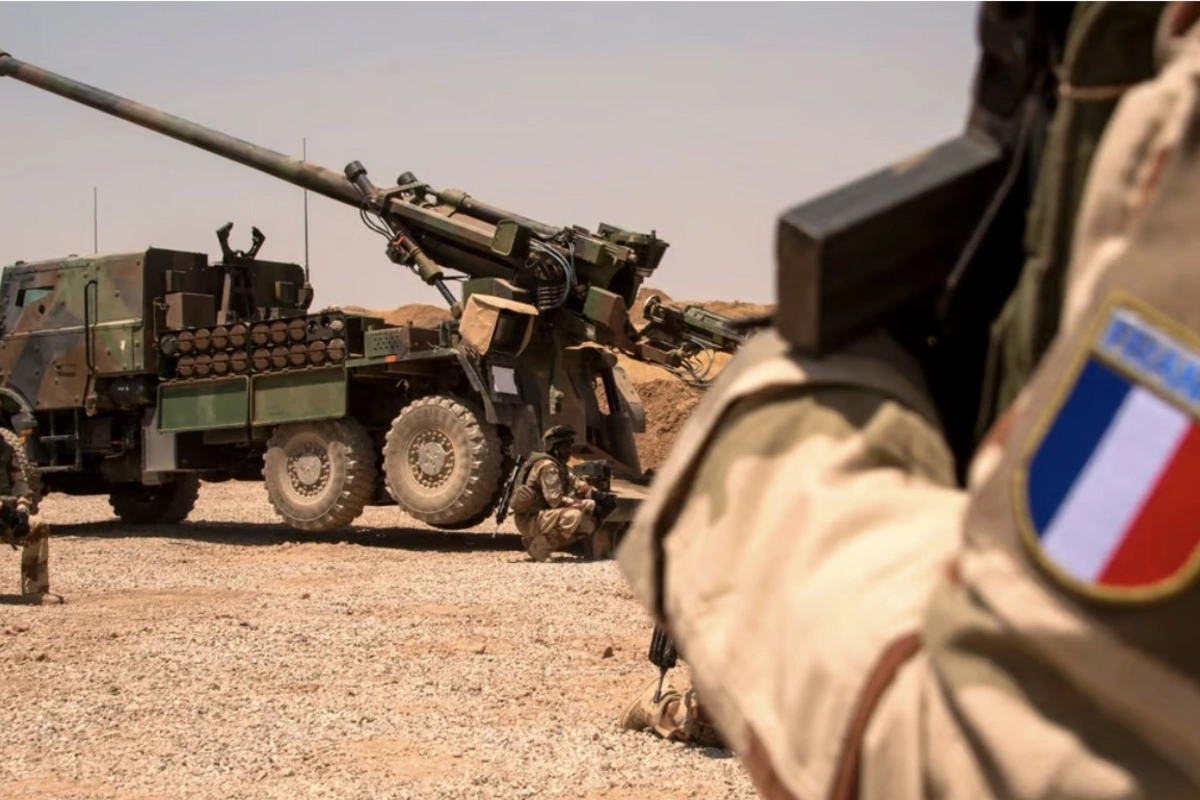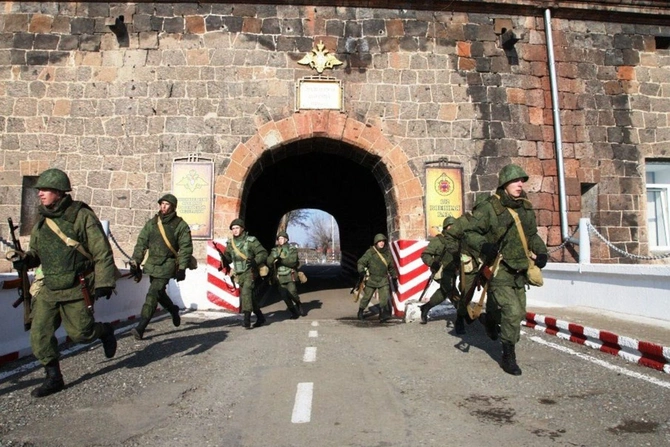
Fadel Senna/AFP via Getty Images
Recent remarks by Armenia’s National Security Council Secretary Armen Grigoryan have stirred intrigue both within Armenia and beyond its borders. His assertion that deepening ties with Brussels and Washington would not harm relations with "third countries"-a thinly veiled reference to Russia-may sound diplomatic, but it conceals a deeper shift in Armenia’s geopolitical orientation. As Armenia courts Western powers with increasing vigor, the question arises: Is Yerevan pivoting away from Moscow, its traditional ally, in favor of the West?
This question has gained urgency as Armenian officials, including Foreign Minister Ararat Mirzoyan, sign agreements with U.S. Secretary of State Antony Blinken, discuss the possibility of French troop deployments, and craft an economic and military-political strategy oriented towards Europe and the United States. These actions represent more than tactical maneuvers; they signal a recalibration of Armenia’s foreign policy at a time of profound geopolitical uncertainty.
Grigoryan’s reassurance that Armenia will maintain its cooperation with the U.S. and EU only insofar as it serves Armenia’s national interests may sound reasonable on the surface. However, the growing alignment with Western powers raises alarm among Russian analysts and even some Armenian experts. Moscow, after all, has been the cornerstone of Armenia’s security and economic stability for decades.
The Russian military base in Gyumri, coupled with Armenia’s participation in the Collective Security Treaty Organization (CSTO) and the Eurasian Economic Union (EEU), has long symbolized Yerevan’s reliance on Moscow. Russia remains Armenia’s primary arms supplier and a vital market for Armenian goods. The energy sector is another linchpin of this relationship: Armenia depends heavily on Russian oil, gas, and electricity.

Yet, recent years have seen Yerevan carefully cultivating relations with Brussels and Washington, signaling a desire to diversify its geopolitical partnerships. This shift is becoming increasingly evident through high-level visits, strategic agreements, and even discussions about a potential NATO or French military presence in Armenia. While these moves may reflect pragmatic efforts to enhance Armenia’s security and economic prospects, they also risk antagonizing Moscow, which views the South Caucasus as firmly within its sphere of influence.
One particularly bold development is Armenia’s overtures to France. Paris has long positioned itself as a staunch ally of Armenia, especially in the aftermath of the Nagorno-Karabakh conflict, offering humanitarian aid and vocal support on the international stage. However, talk of inviting French troops into Armenia represents a significant escalation. For Moscow, such a move would not only symbolize NATO’s creeping influence in the region but also challenge Russia’s role as the dominant security provider in the South Caucasus.
Given the historic rivalry between France and Russia on global and regional issues, deepening Armenian-French military cooperation would inevitably be seen by Moscow as a direct geopolitical challenge. Any foreign troop deployment, particularly from a NATO member state, would exacerbate tensions, making Armenia’s balancing act between Russia and the West even more precarious.
Grigoryan’s claim that Armenia can expand its ties with the West without undermining its relationship with Russia reflects a vision of multi-vector diplomacy-a strategy aimed at extracting maximum benefits from competing powers. While this approach may appear pragmatic, it faces several obstacles:
1. Security dependence on Russia: Armenia relies on Russian military support to deter potential threats in a volatile region. A Western military presence, even symbolic, could strain this critical alliance.
2. Economic interdependence: Russia is Armenia’s largest trading partner, particularly in energy. While diversification is a laudable goal, disentangling from Russian economic influence will take years, if not decades.
3. Geopolitical realities: In the zero-sum game of great power competition, Moscow may view Armenia’s Western pivot as betrayal, no matter how cautiously Yerevan tries to frame it.
Whether Armenia’s foreign policy shift is seen as pragmatic or reckless depends on one’s perspective. For some, Yerevan’s outreach to the West is a necessary response to the evolving geopolitical landscape and an attempt to secure greater autonomy. For others, it risks alienating a long-standing ally without guaranteeing sufficient support from new partners.
What is clear is that Armenia’s trajectory will have profound implications not only for its own security but for the broader South Caucasus. If Yerevan miscalculates, it could find itself in a precarious position-estranged from Moscow but still peripheral to Western priorities. Conversely, if it manages to navigate this tightrope successfully, Armenia could emerge as a model of small-state diplomacy in a polarized world.
For now, however, the risks to Armenian-Russian relations are mounting. How Yerevan handles this delicate balancing act will define its foreign policy for years to come.
Share on social media